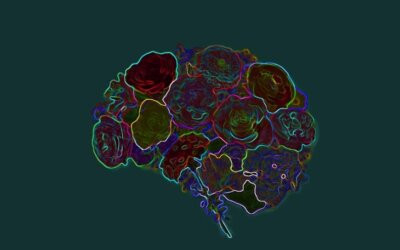A neurodiversity-affirming approach to services is based on the understanding that neurodivergences like Autism and AD(H)D are naturally occurring variations in the human brain and nervous system. These evolutionary differences evolved to provide an advantage to human survival.
Different neurotypes perceive reality very differently. Usually, neurodivergent perceptions of reality are invalidated as abnormal, extreme, disorganized, too much of one thing, not enough of another, crazy, borderline, cold, non-empathic, picky, negative, a downer, critical, withdrawn, or reactive.
A fine-tuned brain
Yet what appears to a neurotypical as criticism is a brain fine-tuned to notice minute details. Intense emotions and sensory experiences are the result of a nervous system that can pick up on the slightest changes in temperature, sound, and mood.
Novelty-seeking neurotypes help nomadic tribes, and our hunter-gatherer ancestors, find new food sources and deal with unpredictable events such as raids and changes in weather.
If the neuroatypical nervous system were a microscope, it would be an electron microscope: extremely high in sensitivity, precision and accuracy. Why, then, do we value the neurotypical nervous system’s grade eleven biology microscope so much more? Why do we believe the information that the grade eleven microscope gives us more than our expensive and rare super-powered electron microscopes?
Affirming
To affirm is to attest firmly and publicly that something is true and exists. Being affirmed by service providers, friends, families, teachers, and employers is a step to recovery from chronic social invalidation. It is ‘crazy-making’ to be disbelieved and devalued at every turn, from the day you were born. The crazy part is that it is normal to be treated this way when you are neurodivergent.
I look forward to the day when the term ‘neurodiversity-affirming’ disappears because we no longer need a term to tell us that we, and our neurodivergent loved ones, will be safe, accepted, valued and believed wherever they go to seek help.
In the meantime, to be neurodiversity-affirming is to:
- believe neurodivergent people when they tell you what they feel, think, see, or hear even if you can’t feel, think, see, or hear the same things.
- recognize and value neuroatypical perceptions as superpowers
- be curious about a brain and nervous system that is wired differently than your own (or is your own)
- listen to neurodivergent voices
- acknowledge the harm that is done, however unintentionally, to atypical neurotypes by our educational, health and mental healthcare systems
- see differences across neurotypes as similar to differences across language and culture and, if you’re neurotypical, do your part to learn the language, too
- eliminate deficit-based thinking from your thoughts and speech and replace it with curiosity and appreciation
- recognize the social, emotional, and cognitive deficits in neurotypicals, we’re human, and we all have them
- not take offence when your neurodivergent staff or friends or spouse when he/she/they zero in on the one flaw in your strategy, the smudge on the mirror you missed after cleaning the whole house, the pattern piece that doesn’t fit
- protect your neurodivergent staff or friend or spouse or child by giving them the window seat, letting them choose the restaurant, set the volume on the tv, wear noise-cancelling headphones, etc
- believe in your young person when their path looks nothing like their peers and you have to endure the ‘my little johnny who graduated summa cum laude at age 22 is off to law school after he leads a group of novice backpackers through the Ganges this summer’ conversations
At Scattergram, we recognize the commonalities and differences in the social, emotional, cognitive, sensory, and physical dimensions of human perception and experience across neurotypes. By providing neurodiversity-affirming care and teaching others in education, health and mental healthcare in our neurodiversity-affirming treatment model, we hope to challenge deficit-based narratives of neurodivergence while increasing understanding, self-acceptance, self-advocacy, equity and inclusion.
Connecting
The Dots
What does it mean to be neurodiversity-affirming?
A neurodiversity-affirming approach to services recognizes naturally occurring variations in brain types and nervous systems and the need for treatment approaches tailored to non-normative neurotypes.
Neurodiversity-affirming is to:
Believe and validate the internal reality of neurodivergent people of all ages
Acknowledge the systemic harm done through chronic invalidation and attempts to ‘normalize’
Recognize that empathy and communication are two-way streets



